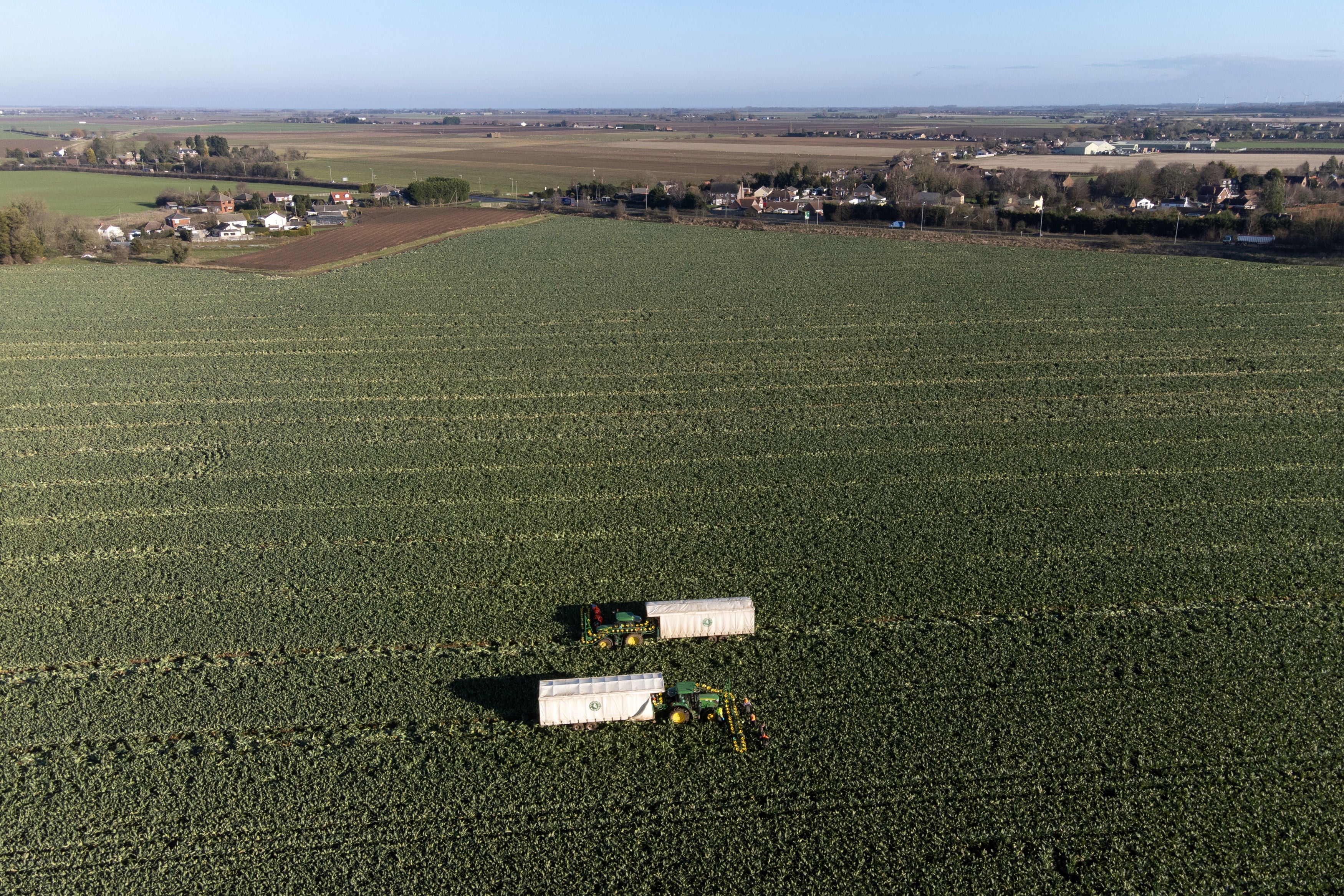Brexit: Failure to tackle labour shortages will ‘permanently’ shrink food sector, MPs warn
MPs say they were ‘struck by government’s failure to grasp the labour issues’

Your support helps us to tell the story
From reproductive rights to climate change to Big Tech, The Independent is on the ground when the story is developing. Whether it's investigating the financials of Elon Musk's pro-Trump PAC or producing our latest documentary, 'The A Word', which shines a light on the American women fighting for reproductive rights, we know how important it is to parse out the facts from the messaging.
At such a critical moment in US history, we need reporters on the ground. Your donation allows us to keep sending journalists to speak to both sides of the story.
The Independent is trusted by Americans across the entire political spectrum. And unlike many other quality news outlets, we choose not to lock Americans out of our reporting and analysis with paywalls. We believe quality journalism should be available to everyone, paid for by those who can afford it.
Your support makes all the difference.Ministers’ failure to tackle acute labour shortages caused by Brexit and the Covid pandemic will “permanently” shrink the UK’s food sector and lead to price increases, MPs have warned.
In an alarming report, the Commons Environment, Food and Rural Affairs Committee said shortages were causing crops to go unharvested in fields and left to rot, while healthy pigs were being culled, as they demanded urgent action from the government.
Citing figures from industry officials, the MPs said vacancies in the sector were estimated to be 500,000 out of 4.1 million roles in August 2021, with labour shortages “due principally to Brexit and the Covid-19 pandemic”.
While shortages were the “single biggest factor” affecting the industry, the report recognised the “unprecedented challenges” of 2021, as the food and farming sector adapted to the circumstances of Covid and Brexit-related export controls.
“We found clear evidence that labour shortages have badly affected the food and farming industry — threatening food security, the welfare of animals and the mental health of those working in the sector,” the report added.
“The food sector is the UK’s largest manufacturing sector but faces permanent shrinkage if a failure to address its acute labour shortages leads to wage rises, price increases, reduced competitiveness and, ultimately, food production being exported and increased imports”.
They said the situation for the pig sector has been “particularly severe”, with 35,000 animals culled “due to the lack of butchers to process them”.
MPs on the Environment Committee, who launched their inquiry after a shortage of HGV drivers hit supplies, also made clear they were “struck by government’s failure to grasp the labour issues”.
Calling on ministers to “radically shift” their attitudes, they claimed the government had failed to demonstrate a “strong understanding” of the issues and had even sought in some instances “pass the blame onto the sector on the basis of incorrect information about its own immigration system”.
“The government must radically shift its attitude and work together with the sector to devise solutions that speedily help address the problems it faces, in the short, medium and long-term to help the UK’s food industry and enable it to thrive,” they added.
Neil Parish, the Conservative MP who chairs the committee, said: “In 2021 farmers faced an extraordinary situation — crops were being left to rot in the fields and healthy pigs were culled due to a lack of workers.
“This has serious implications for the well-being of the people who put food on our tables today and in the future. The government’s attitude to the plight of food and farming workers was particularly disappointing.”
He added: “While some of the reforms put forward by government have helped in the short term, and we agreed that we must look to expand the domestic workforce – this won’t happen overnight.
“In the meantime, it must use the powers available – including over immigration policy — to support the sector. Otherwise we will export our food production and import more of our food.
“Even more importantly, government must change its attitude to the food and farming sector – trusting them and acting promptly when they raise concerns. Our food and farmers depend on it.”
Defra was contacted for comment.
Join our commenting forum
Join thought-provoking conversations, follow other Independent readers and see their replies
Comments